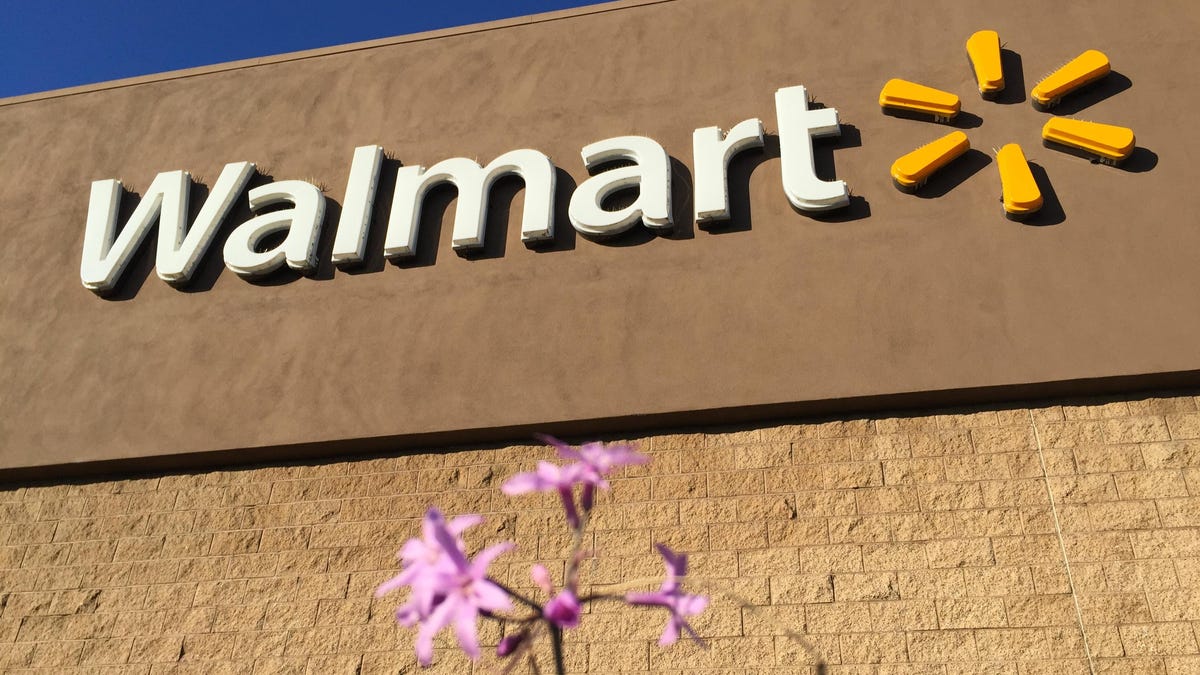Walmart makes waves as a stronger online competitor to Amazon
The retail giant still has a long road ahead if it wants to catch up.

The big-box retailer's e-commerce business has seen a surge during the pandemic.
Walmart said Tuesday that its e-commerce sales in the US jumped 74% in its latest quarter, powered by online grocery sales during the coronavirus crisis.
That figure is huge for the big-box retailer, marking its biggest percentage increase for its online sales over the past three years. Sam's Club reported a 40% increase in online sales.
These numbers point to Walmart getting a lift as a stronger competitor to Amazon , which for years has run the table as the dominant player online. There's still a long way to go for Walmart, which remains the world's biggest retailer but lags well behind Amazon in online sales. As of March, Amazon gobbled up 39% of US online sales, while Walmart's take was just 5%, according to eMarketer. That number might seem low -- but it still means Walmart is actually now the No. 2 online seller, this year overtaking eBay, which has been declining in relevance for years.
Walmart, the biggest grocer in America, also benefited from the massive spike in online grocery demand, which more than doubled in April from March, according to Adobe.
Walmart is obviously not the only online retailer seeing a big boost during the pandemic, with Etsy, Wayfair, Target and, of course, Amazon all reporting better numbers as stay-at-home orders have forced millions of Americans to buy more food and basic goods online.
See also: 9 tips for grocery shopping during the coronavirus pandemic
Seeing positive traction, Walmart is now homing in on its main Walmart.com site. On Tuesday, the company said it's discontinuing Jet.com, which it bought nearly four years ago for over $3 billion. Walmart used Jet and its founder Marc Lore to help jump start its e-commerce ambitions, but the efforts to turn Jet into a niche e-commerce site for city dwellers failed to take off. Traffic to Jet has been tumbling for the last three years, according to researcher MarketPlace Pulse. Lore remains at Walmart as the company's CEO of US e-commerce.
Walmart's overall revenue rose nearly 9% in its first quarter to $134.6 billion, boosted especially by US sales. But that increase came with sharply higher costs. The retailer said Tuesday it took on nearly $900 million more in costs related to the coronavirus crisis, including cash bonuses to hourly employees that cost $755 million and the hiring of over 235,000 more US workers to help it manage a surge in customer demand.
Despite the higher costs, Walmart still reported that its profit increased nearly 4% to just under $4 billion.
While tens of millions of Americans have filed for unemployment during the pandemic, Walmart and a handful of other essential businesses -- including Amazon, Instacart and Kroger -- have been hiring hundreds of thousands more workers. Amazon, too, incurred huge additional costs related to the pandemic and predicted it would spend billions of dollars more in the current quarter.
Walmart's fortunes also contrast starkly against a handful of traditional retailers who have filed for bankruptcy during the outbreak, since malls and many clothing stores have remained closed and overall US retail sales have plummeted. Those flagging retailers include J.Crew, Neiman Marcus and JCPenney.

